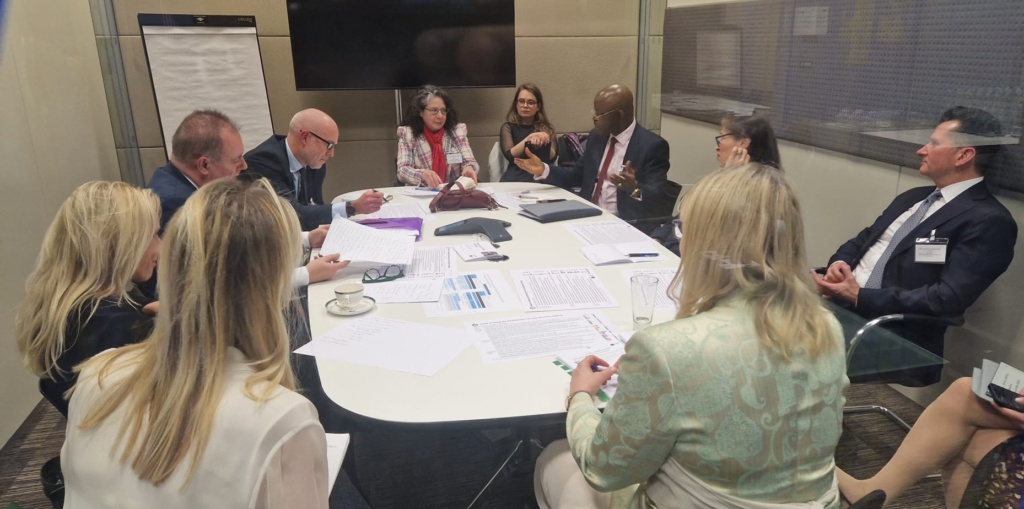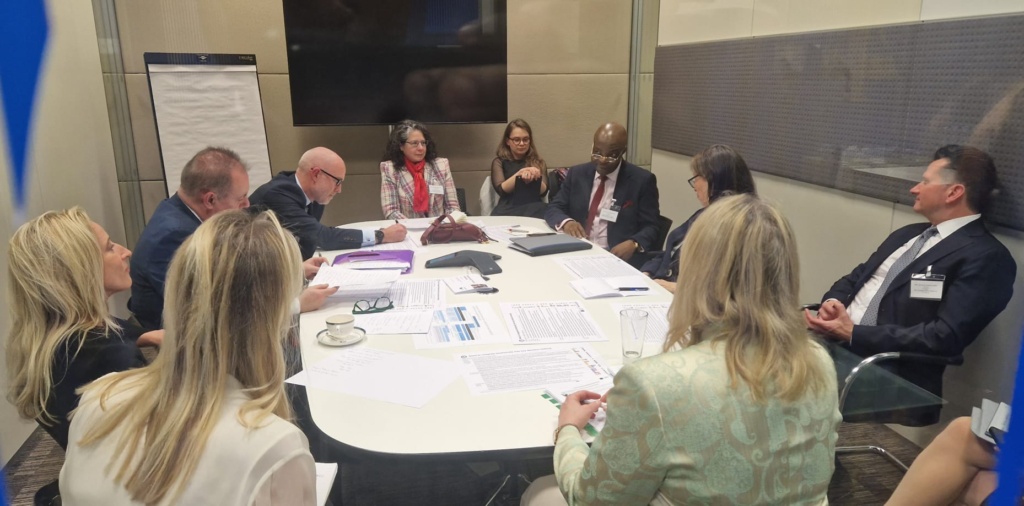
By Milton Tella – Foreign governments, philanthropists and business leaders gathered to drive forward action to protect and restore nature in London on 17 February, 2023 with the theme “Driving Private Sector Action on Nature” hosted by insurance giant Lloyd’s of London, a leading financial institution in the United Kingdom.
The High Commissioner for Nigeria to the United Kingdom, His Excellency, Ambassador Sarafa Tunji Isola, OFR, attended the Global Action on Biodiversity and Roundtable Discussion on Sustainable Markets Initiative (SMI), to align his country and agree on a comprehensive set of credible and stretching targets on finance in the Global Biodiversity Framework.
The event was organised to help drive delivery of the deal agreed by almost 200 countries at the UN Nature summit in Montreal in December, (COP15), which included a framework requiring countries to halt and reverse biodiversity loss by 2030 and to protect 30% of the world’s land and ocean by the same date.
The Sustainable Markets Initiative (SMI), founded by His Majesty King Charles III, when he was the Prince of Wales, was launched at The World Economic Forum’s 2020 Annual Meeting in Davos. The SMI’s mission is to build a coordinated global effort that enables the private sector to accelerate the transition to a sustainable future.
Ambassador Isola’s invitation to this Roundtable and Networking event came on the heels of a paper delivered last year on Sustainable Markets Initiative at the Commonwealth Heads of Government Meeting (CHOGM) 2022 in Kigali, Rwanda, where he made a plea to all stakeholders to move from a system of talk-and-talk to one of talk-and-do especially with regards to redeeming respective pledges on mitigation.
The Global Action on Biodiversity and Roundtable Discussion on Sustainable Market Initiative (SMI) was the second of two high level events organised by His Majesty King Charles III for his first sustainability engagement in 2023.
The first event of the day was His Majesty The King’s “Reception in Support of Action on Global Biodiversity” which was held at the Buckingham Palace on the same day with Ambassador Sarafa Tunji Isola in attendance.
Also in attendance at both events was the Commonwealth Secretary General; The Rt Hon Patricia Scotland KC, Ministers from many countries and Environmentalists across the world.
In his submission at the Roundtable Discussion, John Neal, the CEO of Lloyd’s of London talked about how protecting our ecosystem is a complex challenge, but an achievable one. He said Biodiversity is in severe decline due to a combination of conflicting private and public interests, incoherent policy and governance, and insufficient financing.
He further stated that although no less than US$143 billion is spent on biodiversity every year globally, this is far below the estimated US$824 billion needed to protect and restore nature bringing about the need for such a roundtable to discuss and agree a set of concrete actions that the SMI membership can commit to and take forward – individually and collectively – to support protection of biodiversity and nature, halt drivers of biodiversity loss, and promote nature restoration and regeneration.
The roundtable will also help kickstart and frame discussions on current finance flows, where funding should be prioritized and how to make this happen.
On his part, His Excellency, Sarafa Tunji Isola during the breakout session noted that humanity’s increased dependence on finite natural resources, and dramatic impact of climate change has resulted in a lopsided imbalance between economic development and environmental sustainability.
In his words: “We have created a world of complex problems that goes beyond simple solutions”. “Increased rate of biodiversity loss and other planetary crises are endangering global economies, the financial sector, and significantly exposed to nature, has a key role to play in transforming the present financial system, especially in aligning financial flows for a nature- positive world.”
Ambassador Isola also noted that while Climate change is a great concern for countries globally, Africa is expected to be one of the continents that will suffer the most from climate change effects, with increased droughts, storms, floods which threaten the populations, the ecosystem, as well as the economy. Surprisingly, Africa accounts for less than 4% of the world’s annual greenhouse gas emissions but will suffer from the undesirable impacts of climate change. He further stated that in Nigeria and other African countries, indigenous people and local communities find it difficult to conserve with their traditional knowledge and to make efforts to conserve areas that are very important for biodiversity and well-being. Which is why the African Union (AU) made the recommendation last year at the Conference of Subsidiary Body on Scientific, Technical and Technological Advice (SBSTTA) held in Geneva, Switzerland of the need to set up a Global Biodiversity Fund that will include the contributions of developed countries from each item that is sold in developed countries from biodiversity with a percentage of sales from such item going into this fund and being channeled back to developing countries to be deployed towards efforts to combat climate change, conserve biodiversity and avoid loss.
He added, “Governments need to work with the private sector to better align private financial flows towards transforming economies to become resilient, climate-neutral, nature- positive and less polluting. For instance, in Nigeria, the tree planting initiative funded through National Appropriation, Sovereign Green Bond, and Private Sector has resulted in the successful afforestation, reforestation and restoration of degraded lands, vulnerable sites and landscapes with over 20 million trees species and distribution of over 6,550,056 tree seedlings to sub-national governments and institutions.”
“The crux of the whole issue is realigning investments aimed at directing financial flows away from projects with negative impacts on biodiversity and ecosystem services to projects that mitigate negative impacts or pursue positive environmental impacts as a co-benefit.”
In her remarks, the Commonwealth Secretary General Rt Hon Patricia Scotland KC urged all the stakeholders present to take decisive action towards closing the funding gap to protect the Earth’s precious natural environment noting that every element of the puzzle needed to deliver the change is present at the event. In her words: “this can be done if we all choose to work together. It will take all of us: governments, multilateral funding mechanisms, private sector and philanthropy. If we are to put money where it matters most – nature conservation.” She said that the time to work together has arrived, and we must ask ourselves a fundamental question: “If not now, when? If not us, who?
Kindly follow us on twitter:@AfricanVoice2











